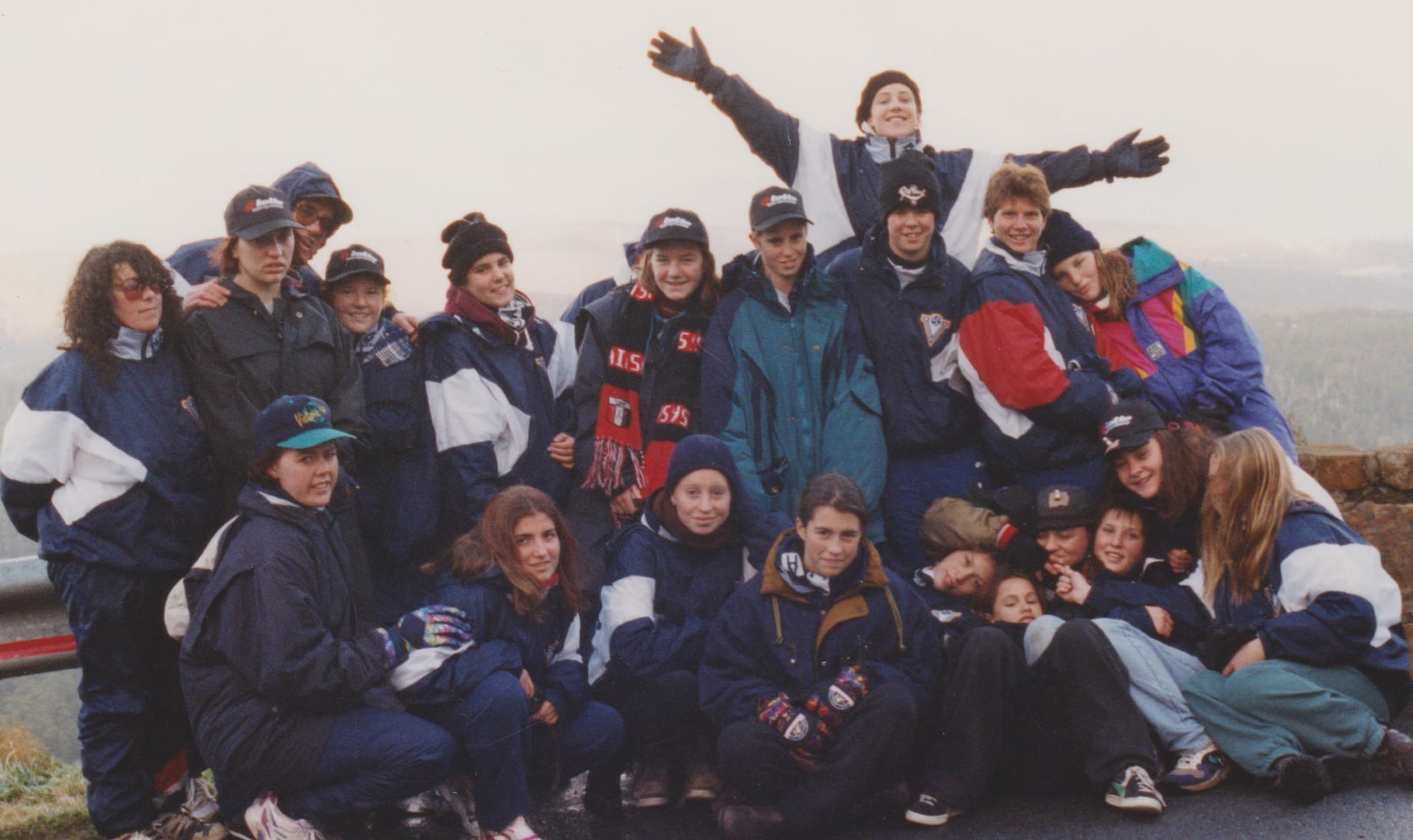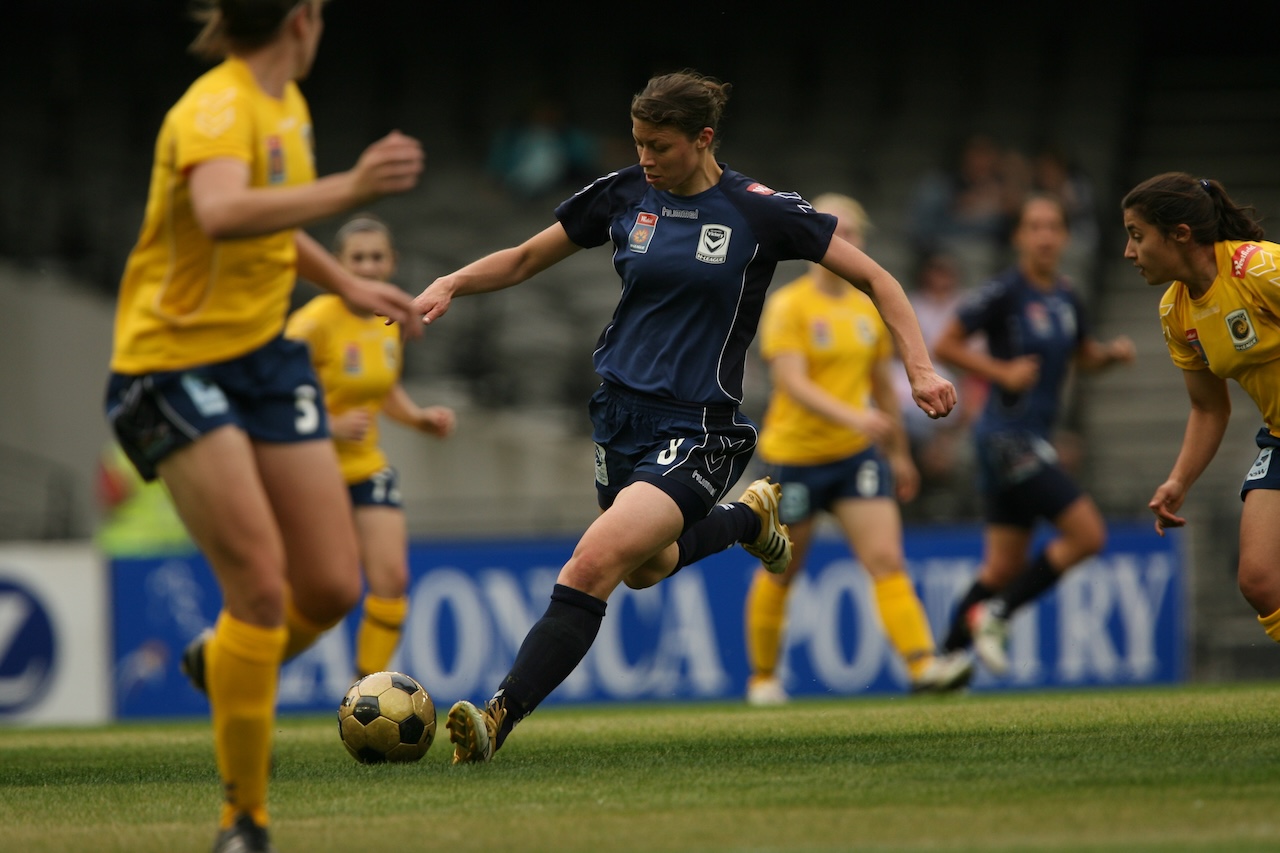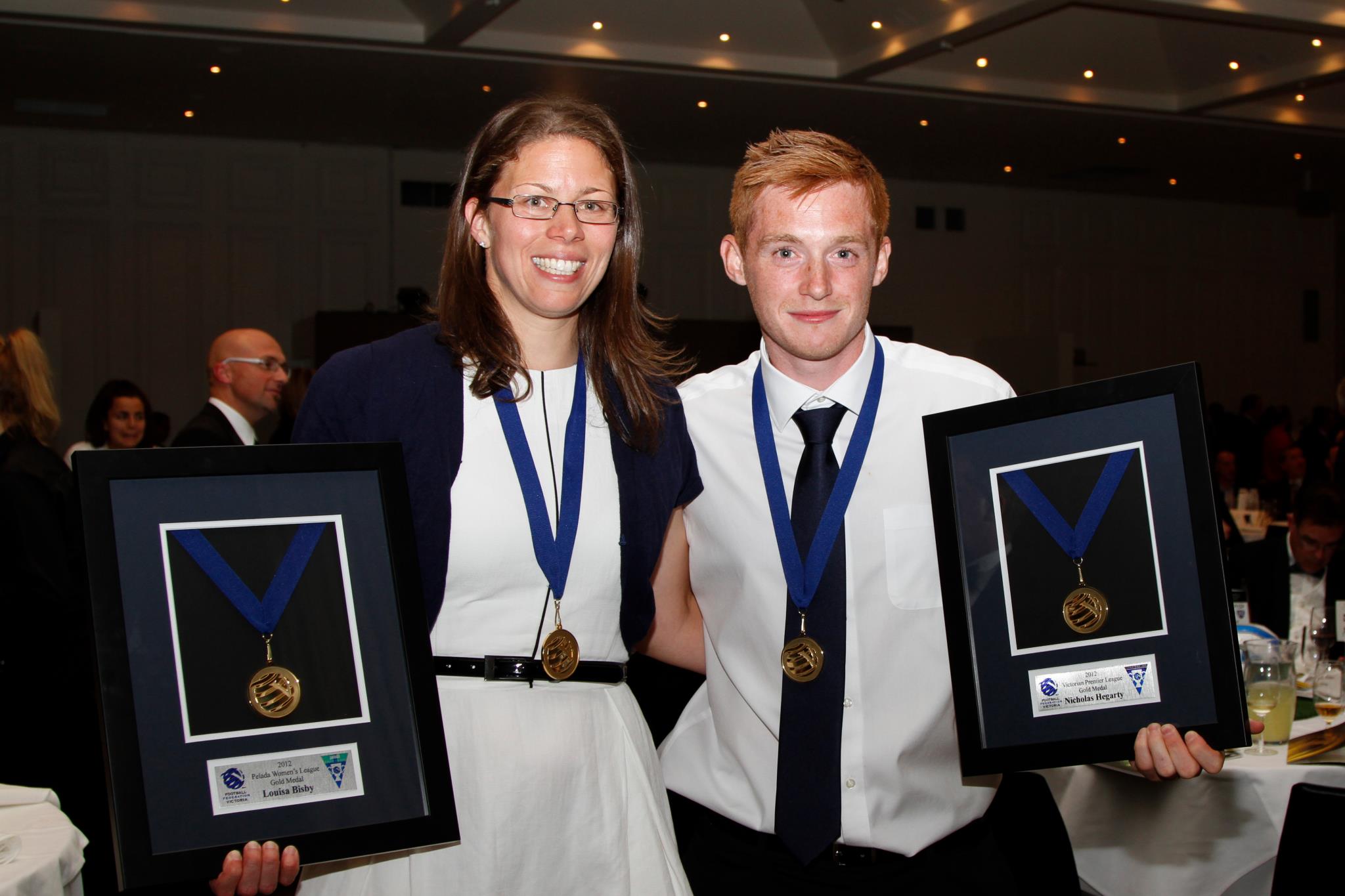Louisa Bisby
Born in Warwickshire in England in 1979, Louisa Bisby played her junior football with Aston Villa, before emigrating to Melbourne with her father and twin sister at the age of 15. Bisby played with Doncaster Rovers in her first couple of seasons in Australia, appearing in a losing Cup Final to powerhouse Berwick City in 1995.
Even as a relative newcomer to the Victorian soccer scene, Bisby was quickly recognised as one of the brightest young talents in the state, representing Victoria at the 1995 National Junior Championships in Hobart. A move to Brunswick Zebras followed, where she played alongside Matildas and senior state representatives Melissa Barbieri and Nicky Leitch, winning back-to-back League Championships (1996-1997) and solidifying her selection in the Victorian Youth Team, where she played in four successive National Championships, winning at her final attempt in Darwin in 1999. She was also a member of the senior squad which claimed the final National Championships under the AWSA banner in Devonport. Her debut for Australia arrived in Canberra not long after in January 1999, as she stepped onto the pitch as a second half substitute for Sarah Cooper against the Canadian B Team.
While Bisby excelled at Championship level, she was equally impressive with the ITC program that competed in the inaugural Women’s National League. Bisby appeared in every edition of the competition between 1996 and 2004, only missing the final season after a move abroad. In all, she made 58 appearances for Victoria (a record for the state in the WNSL era) and a further 15 appearances for South Australia. A move to China in 2002, where she joined Sichuan Dahe provided invaluable professional experience to compliment her performances with Victoria Vision at national league level and a number of clubs in the Victorian Premier League.

By the turn of the century, Bisby had joined Ringwood City, claiming her third Victorian Premier League title at the age of 21, While her teammates included Barbieri, Selin Kuralay and Daniel Digiammarco, it was Bisby who impressed, winning the Gold Medal for the Premier League’s Best-and-Fairest. The club moved en masse to Box Hill Inter the following season, Bisby claiming the Gold Medal once again in 2003 before a move to Germany at a professional level beckoned once more. She helped her German club Brauweiler Pulheim to promotion in 2004, and her one season in the Frauen-Bundesliga yielded a couple of goals from 15 appearances.

A return to Australia in the absence of a national competition meant a reprisal of her role with Box Hill Inter. She scored both goals in a losing team as Heidelberg United claimed honours in 2007 but timed her run after an injury-curtailed season to avenge that defeat the following year. Along with Barbieri, Digiammarco and Perth-born Matilda Tal Karp, Bisby helped form the nucleus of Melbourne Victory’s inaugural squad in the newly launched W-League. She would make 22 appearances all up for the Victory before an ACL injury cut short her semi-professional career at the age of 33.

That injury came off the back of a fifth WPL Championship, this time with Box Hill United (an amalgamation between Inter and Southern Suburbs). Bisby scored first in a thrilling penalty shootout after the scores were deadlocked at 3-3 against Bundoora United. The season was footnoted with an unprecedented third Gold Medal win, a record which still stands a dozen years later. Bisby returned to football post-ACL, kitting up for Mark Torcaso’s Bundoora outfit in 2014 and 2015, before finally ending her career at the Bergers in 2016, two decades after she first appeared with Doncaster Rovers in a remarkably different football landscape.
